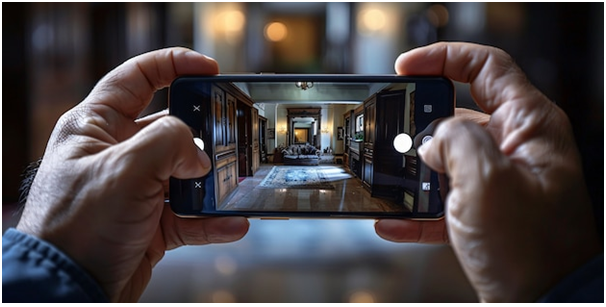
Experts Say Playing Video Games Can Set You Up For Success – Here’s 6 Reasons Why, Backed By Science
Game Time is Brain Time: Experts Reveal the Science-Backed Professional Benefits of Gaming
Once seen as merely a niche hobby, gaming has evolved into an activity enjoyed by an estimated 3.32 billion people around the world. While many still view gaming purely as entertainment, emerging research has begun to reveal that gaming isn’t just about entertainment – it’s developing core workplace skills that can lead to real-world success.
“We’re discovering that video games are actually powerful tools for developing real-world skills,” explain experts at MPL, a premier mobile gaming brand. “The very activities that make gaming engaging are the same ones that can set people up for success in their careers and lives.”
From quick thinking under pressure to becoming a master problem-solver, MPL lists six surprising ways your gaming sessions might be secretly preparing you for success, all backed by scientific research.
#1 Problem-Solving Abilities
Whether you’re outmanoeuvring opponents in a battle royale or solving puzzles in an adventure game, gaming constantly puts you in situations where quick thinking is a must.
Research from a comprehensive review of 27 studies shows gamers excel at processing information and making accurate decisions under pressure, with strategy gamers displaying particularly strong cognitive flexibility while action gamers master rapid task-switching.
“What’s fascinating about gaming and problem-solving is how naturally it builds this skill,” explain experts at MPL. “Games create an environment where you’re making dozens of strategic decisions per minute while actually enjoying the challenge – you’re building valuable real-world skills without even realising it.”
#2 Sharper Cognitive Skills
Not only is gaming fun – it gives your brain the kind of workout that could set you up for success in any fast-paced career. Those hours of gameplay are actually improving everything from memory to impulse control – necessary skills in today’s work environment.
“The cognitive benefits of gaming are often overlooked,” explain experts at MPL. “But every gaming session is essentially a high-intensity training session for your brain, building the mental agility and quick thinking that employers value most.”
The career-boosting potential is backed by research – a study of nearly 2,000 children found that those who played video games for three hours per day or more performed better on cognitive skills tests involving impulse control and working memory compared to children who had never played video games.
#3 Master of Self-Control
A groundbreaking study examining the impact of different video game genres found that strategy gamers consistently showed higher levels of self-regulation – the ability to control behaviour and emotions to reach goals. This held true even when researchers controlled for factors like personality traits, age, and overall gaming time.
“What’s significant about strategy games is how they train players to consistently prioritise long-term planning over instant gratification,” explains MPL. “These games create scenarios where success depends entirely on your ability to control impulses and stick to carefully planned strategies.”
This kind of self-control is gold dust in the workplace. From project management to leadership roles, the ability to regulate behaviour and stay focused on long-term goals often separates high achievers from the rest.
#4 Improved Team Performance
A groundbreaking study from Brigham Young University revealed that newly-formed work teams experienced a remarkable 20% increase in productivity after just 45 minutes of playing video games together, outperforming traditional team-building activities.
“Multiplayer gaming has been shown to quickly build effective team dynamics,” explains MPL. “In gaming, success often depends entirely on communication and coordination. Gaming environments naturally develop the collaborative skills that make workplace teams excel.”
This kind of team synergy is invaluable in professional settings. The ability to quickly form effective working relationships and coordinate efforts often distinguishes high-performing teams from average ones.
#5 Mental Flexibility
A scientific study examining game-based cognitive training found that gamers developed superior task-switching abilities and reaction times after just twenty 45-minute sessions over 4-6 weeks. The research showed particular improvements in handling distractions and competing demands.
“Modern games constantly challenge players to manage multiple objectives and adapt to changing situations,” explain experts at MPL. “This builds exactly the kind of cognitive agility that’s sought after in today’s demanding workplace.”
This mental adaptability is invaluable professionally – from managing multiple projects to navigating rapid changes in business priorities, efficient task-switching often separates top performers from their peers.
#6 Leadership Development
Research examining game-based learning found that gaming effectively develops vital leadership skills including motivation, facilitation, coaching, and communication. The study of 120 participants revealed that gaming scenarios closely mirror organisational challenges, making them ideal training grounds for future leaders.
“Gaming environments naturally promote leadership development,” explains MPL. “Players have to motivate teams, facilitate strategies, and communicate effectively under pressure – skills that directly translate to workplace leadership roles.”
From start-up founders to Fortune 500 executives, these gaming-honed leadership abilities often separate those who climb the corporate ladder from those who revolutionise entire industries.
A spokesperson for Mobile Premier League Gaming (MPL) commented:
“These findings challenge the outdated view that gaming is just a waste of time. What we’re seeing is that gaming develops exactly the types of skills employers are desperate for – especially in high-growth industries like tech and business. The research shows these skills aren’t just theoretical – they translate directly into measurable workplace performance.
“Perhaps most interesting is how quickly these benefits develop – from 45-minute sessions improving team productivity to a few weeks enhancing mental flexibility. As the job market becomes increasingly competitive, those who play video games might actually have an unexpected edge over their peers. It’s time for both employers and employees to recognize gaming as a legitimate form of professional development.”
